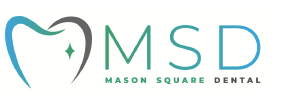
Do you often wake up feeling exhausted and unrested or have you been told that you snore? While these symptoms are not uncommon, they may also be a sign of Obstructive sleep apnoea.
What is Obstructive sleep apnoea?
Obstructive sleep apnoea is a condition where the soft tissues at the back of the throat collapse while sleeping, causing the airways to become temporarily blocked. This can occur many times in one night, and results in disturbed sleep.
Although anyone can be affected by Obstructive sleep apnoea, the risk is higher in those who are over 40 years old, overweight and have a family history of sleep apnoea.
What effects does Obstructive sleep apnoea have on our general health?
Disturbances in sleep and oxygen deprivation from Obstructive sleep apnoea can contribute to a number of health problems including…
- High blood pressure
- Heart attack and heart disease
- Stroke
- Diabetes
- Depression
How can a dentist help?
A dentist or doctor may first refer you to a sleep specialist to do a sleep study in order to confirm a diagnosis of Obstructive sleep apnoea. Sleep apnoea can be managed in several ways, depending on the individual, including the use of a CPAP machine, lifestyle changes or surgery.
If diagnosed with a mild-moderate case of Obstructive sleep Apnoea, an oral appliance, similar to a mouthguard, can be organised by the dentist to be made. These devices work by shifting the jaw forward to prevent the airway from collapsing. An added bonus is that they can also prevent snoring to improve your partner’s quality of sleep too.
To find out more about how we may be able to improve your sleep, contact us for a consultation.

